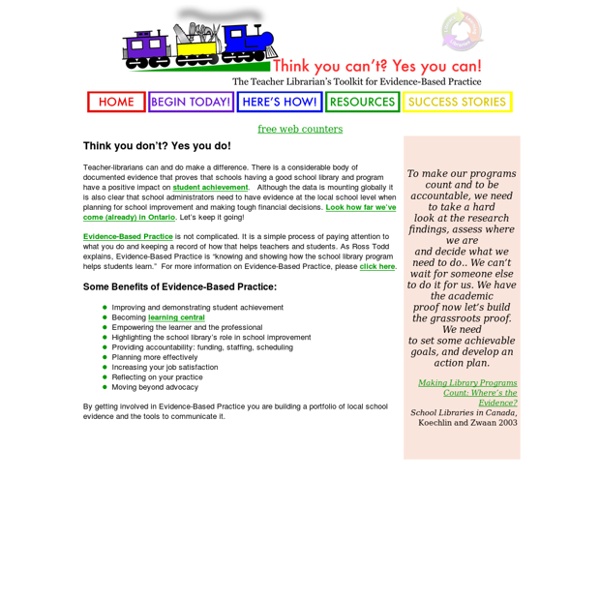Education Research Highlights From 2016
In 2016, we learned more about how teachers feel about their profession, from the reasons why they started teaching in the first place (#1) to why they leave (#6). We learned that science students do better when teachers share stories about the struggles scientists face instead of portraying them as geniuses (#3). We’re also learning more about why U.S. students are falling behind students in other countries (#12). Here are 15 studies published this year that every educator should know about. 1. It Turns Out Teaching Really Is a Noble Profession
Your school library budget
This guide provides advice on what to include in your library budget, and on planning and tracking the expenditure. Contents Responsibility for your budgetDeciding on a budgeting methodLibrary budget contentBudget allocationBudget management and reviewAdditional sources of fundingBudget Proposal template Responsibility for your budget
WBDG - Whole Building Design Guide
Overview School libraries differ from most other types of libraries because they are contained within school buildings, which, in addition to library space, may include classrooms, auditoriums, circulation space, administrative offices, cafeterias, and the like. As a result, school libraries, or library media centers (LMCs) as they are commonly called, are smaller than their counterparts. Appropriate space planning for present needs and future expansion is imperative in the school library program. According to a study by the Wisconsin Department of Public Instruction, computer and video technology, in addition to other forms of media including print material, is an important part of education.
Teaching Vocabulary in the Middle Grades - Taking Center Stage-Act II (TCSII) (CA Dept of Education)
In this Professional Learning Activity, Dr. Kinsella presents an instructional approach that bolsters students’ expressive vocabulary knowledge, outlines key steps for teaching a word, and explains the pivotal role of vocabulary in literacy and learning. Take Stock: pre-video reflection exercise Take Time: watch the video Take Action: initial activities designed to help educators implement the practices suggested Take it Away: answer questions designed to help educators identify support and resources needed to implement the suggested practices This professional learning activity is one of several in the TCSII Get into the Act! Professional Learning Series.
Get Started - Tutorials - Proposal Writing Short Course
Introduction The subject of this short course is proposal writing. But the proposal does not stand alone. It must be part of a process of planning and of research on, outreach to, and cultivation of potential foundation and corporate donors. This process is grounded in the conviction that a partnership should develop between the nonprofit and the donor.
1000 Black Girl Books Resource Guide – GrassROOTS Community Foundation
This resource guide was created in direct response to the multiple requests made by educators, parents and students. Like Marley Dias, so many of you have asked for books with black girls as the main characters. And because of you, we have received thousands of books.
Building Language and Literacy Skills - Taking Center Stage-Act II (TCSII) (CA Dept of Education)
In this Professional Learning Activity, Dr. Kinsella explores steps in effectively setting up discussion tasks for students. Take Stock: pre-video reflection exercise Take Time: watch the video Take Action: initial activities designed to help educators implement the practices suggested Take it Away: answer questions designed to help educators identify support and resources needed to implement the suggested practices
Marketing for Libraries
In this section, we'll examine the design of communications and explore the stories that bring library products alive. Key Questions Each of the following questions will be addressed on this page. For quick access, click on the question of interest.
Rainbow Book Lists « Rainbow Book List
Rainbow Book List Rainbow Book Lists The Rainbow Book List is released every January. Books on the list are published within the assigned calendar year or between July 1 and December 31 of the previous calendar year. 44 Responses to "Rainbow Book Lists"
The Tyranny of Being On Task
I remember when I was first teaching and was getting ready for my first official observation and evaluation. I was very nervous. My principal had told me she would be looking for a classroom where students were on task. Heaven forbid that any students were off task.
Ten Things Your Administrator Needs to Know as the School Year Begins
10. That you are a teacher who teaches not content but process. You teach children to be information literate, digitally literate, media literate, and visually literate. The skills that you teach, the dispositions that you help children to develop, the responsibilities that you foster, and the self-assessment strategies that you instill will serve children not only in school but also in life. You are, first and foremost, a teacher! 9.
Selection & Reconsideration Policy Toolkit for Public, School, & Academic Libraries
"The library is a growing organism" S.R. Ranganathan (1931) Home | IntroductionWhy Do I Need a Policy? | Politics and Timing of Policy Creation | Selection Policies for Non-Public Institutions Basic Components of a Selection PolicyLibrary Mission | Support for Intellectual Freedom | Objectives | Responsibility for Selection | Selection Criteria | Acquisitions Procedures | Special Collections | Selecting Controversial Materials | Gifts and Donations | Collection Maintenance and Weeding | Policy Revision | Reconsideration Reconsideration ProcedureGuiding Principles | Statement of Policy | Informal Complaints | Request for Formal Reconsideration | Sample Reconsideration Form | Sample Letter to Complainant | Reconsideration Committees
12 Principles Of Modern Learning
12 Principles Of Modern Learning by TeachThought Staff What are the principles of modern learning? Well, that depends on how you define ‘learning’ and what you’d consider ‘modern.’ Richard Olsen put together this useful visual way, way back in 2013–a chart that lays out three categories of a modern approach to learning–Modern, Self-Directed, and Social.



